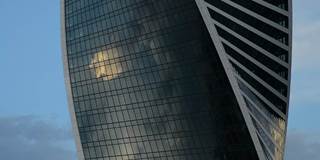Business investment depends on expected future demand and output growth, not on current returns or retained earnings. This “accelerator” theory of investment explains most – but not all – of the weakness of business investment in the developed economies since the 2008 financial crisis.
BERKELEY – The weakness of private investment in the United States and other advanced economies is a worrisome – and perplexing – feature of the recovery from the 2008 global financial crisis. Indeed, according to the International Monetary Fund, through 2014, private investment declined by an average of 25% compared to pre-crisis trends.
The shortfall in investment has been deep and broad-based, affecting not only residential investment but also investment in equipment and structures. Business investment remains significantly below pre-2008 expectations, and has been hit hard again in the US during the last year by the collapse of energy-sector investment in response to the steep drop in oil prices.
Interestingly, the investment shortfall in the US coincides with a strong rebound in returns to capital. By one measure, returns to private capital are now at a higher point than any time in recent decades. But extensive empirical research confirms that at the macro level, business investment depends primarily on expected future demand and output growth, not on current returns or retained earnings. According to the IMF, this “accelerator” theory of investment explains most of the weakness of business investment in the developed economies since the 2008 crisis.

BERKELEY – The weakness of private investment in the United States and other advanced economies is a worrisome – and perplexing – feature of the recovery from the 2008 global financial crisis. Indeed, according to the International Monetary Fund, through 2014, private investment declined by an average of 25% compared to pre-crisis trends.
The shortfall in investment has been deep and broad-based, affecting not only residential investment but also investment in equipment and structures. Business investment remains significantly below pre-2008 expectations, and has been hit hard again in the US during the last year by the collapse of energy-sector investment in response to the steep drop in oil prices.
Interestingly, the investment shortfall in the US coincides with a strong rebound in returns to capital. By one measure, returns to private capital are now at a higher point than any time in recent decades. But extensive empirical research confirms that at the macro level, business investment depends primarily on expected future demand and output growth, not on current returns or retained earnings. According to the IMF, this “accelerator” theory of investment explains most of the weakness of business investment in the developed economies since the 2008 crisis.